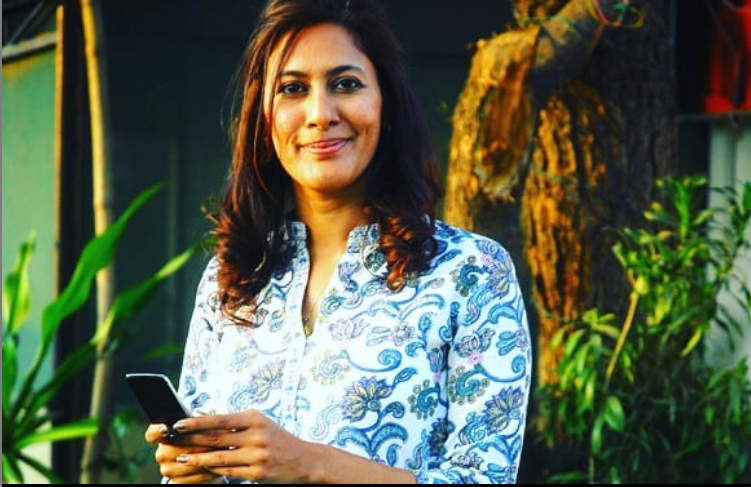Meet India’s First Woman Sarpanch: Chhavi Rajawat, Who Quit Her Corporate Career To Uplift A Village In Rajasthan

Chhavi Rajawat (42), who hails from the quaint hamlet of Soda in Rajasthan, never had plans to enter politics.
After completing her high school education from Rishi Valley School, Bengaluru, she went on to pursue graduation from Lady Shri Ram College, Delhi, and later an MBA from Balaji Institute of Modern Management Pune in 2003.
The next step was to seek a corporate job, and over the 10 years that she worked with The Times of India, Airtel and the Carlson Group of Hotels, she continued climbing the ladder to success. Little did she know, destiny had different plans for her.
While pursuing her education, Chhavi would often visit Soda, her ancestral village, to spend time with her grandfather, Brij Raghubir Singh, who held the position of a sarpanch for three terms until 1990. A people’s person, Chhavi would interact with other villagers, and was nothing short of the ‘daughter of the village.’ At that point, Soda was a great escape for her, where she spent time with her family.
In 2011, the situation completely turned around, when Soda was hit by a severe drought and a group of villagers sought her help. The agrarian village is heavily dependent on monsoon, and the previous few years were particularly difficult. The groundwater was unfit for consumption, and was causing several health hazards in both children and adults. It was then that she decided to take stock of the situation, and competed for the sarpanch elections. Winning by a huge margin, she became the youngest sarpanch in India, at the age of 30.
A difficult road
It wasn’t an easy ride for Chhavi; she had never dealt with politics in any form, leave alone rural politics. But Chhavi wanted to do all she could for the villagers in the real sense, and that’s where her journey began. Not being affiliated to any political party made it more challenging, but she knew her ambition, drive and dedication were enough to bring about a transformation.
Her plan was to work towards connecting the government, private sector, and rural India. At that stage, she was living in a palatial house in Jaipur; but she wanted to be accessible to the villagers and hence moved to Soda.
Dynamic and passionate, Chhavi was unlike any other woman that the villagers had seen. While most women covered their faces under a ghoonghat (veil), Chhavi was smart, confident, and moved around in jeans. Gender bias is prominent in most villages in Rajasthan, but Chhavi was clear; she was here to walk the talk.
Ground up
Chhavi created a well-thought-out strategy that covered areas like water, sanitation, electricity and roads. Thanks to her experience with corporates, she was able to partner with the right stakeholders to get the job done. Right from constructing toilets, working on electricity issues to proper roads, Chhavi made sure the villagers led a quality life.
Besides, she moved the female students to a formal school building; previously, they would study in the open, whatever be the condition.
What’s more, she also got State Bank of India to open a branch in Soda, and made sure everyone in the village has a bank account. Her objective was to promote financial literacy in the village and make them self-sufficient. She also convinced corporates like Mahindra & Mahindra, as well as Coca-Cola to work on some projects to uplift the village.
Under Chhavi’s dynamic leadership, Soda had a complete transformation - from being backward to now being called a ‘model village.’
Laurels galore
Chhavi has received appreciation the world over for her constant efforts to bring about a change in society. She has been elected as an Aspen Fellow, and was also part of the World Economic Forum India Summit 2012, as co-chair. Chhavi was also awarded the title of Young Global Leader by WEF in 2012. She has also won the Yuva Award and has been recognised as a Young Indian Leader by CNN.
Chhavi might have won several laurels, but her biggest achievement has been breaking gender stereotypes. Today, she is a role model for women across the world.
(Edited by Athira Nair)

